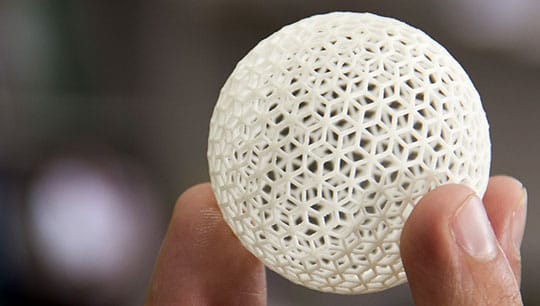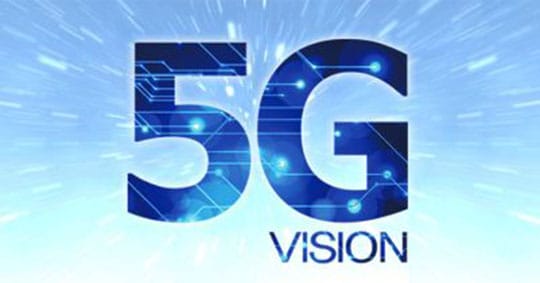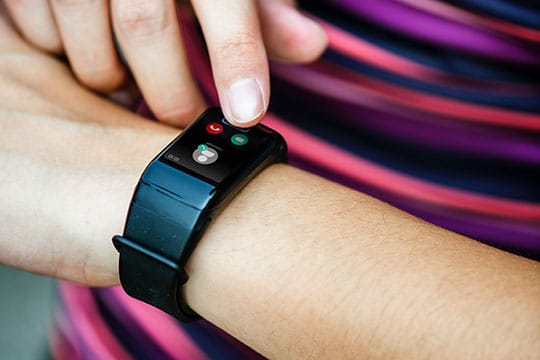In this digital era, healthcare technology is rapidly evolving into new and ultra-modern innovations. Healthcare systems are eager to jump into the technology adoption bandwagon to utilize its benefits. Moreover, with healthcare turning more into a customer-centric service, it has become imperative for healthcare organizations to keep up with the rapidly growing technologies.
So, let us walk through the major advantages of technology innovation to find out how it has influenced healthcare firms and what it has in store for the future of healthcare.
1. Impact of Artificial Intelligence in Healthcare Industries

With the advent of artificial intelligence in healthcare, doctors have gained access to an enhanced support system to diagnose and treat patients flawlessly than before. The various abilities of artificial intelligence like predictive analysis have unlocked numerous cost-saving and unique customer experience opportunities for healthcare. Here are a few ways in which artificial intelligence has powered healthcare sectors:
a. For Diagnosis

Imaging techniques with AI have evolved that help avoids errors. For instance, AI algorithms are developed for use in cardiology and radiology and are utilized extensively for accurate results. It is also used for identifying cancer cells in their early stages as well as heart attacks etc.
b. For Medicine Development

Artificially intelligent applications contribute to the creation of new tailored medicines. According to the California Biomedical Research Association, $359 million and a duration of 12 months is what it takes for developing new medicines. AI reduces the time taken to develop new medicines significantly as well as the costs associated with the same.
c. Evolution of Prosthetics

The look-alike of body parts, and prosthetics make use of AI systems. Since prosthetics can only be replaced instead of the missing body parts and not perform the intended functions, AI can help. For instance, a prosthetic leg can be programmed to kick a ball that comes into sight with the intervention of AI.
d. Virtual Systems for Follow-Ups

AI-powered virtual checkup systems enable follow-ups for doctors as well as patients. For instance, health chatbots are dependable solutions as they can answer medical questions by assessing symptoms, etc.
e. Robotic-Assisted Surgeries

The impact of robots can be seen in surgeries, emergency care, etc. Artificial Intelligence can represent a wide array of technologies that can mimic human cognitive amenities.
Some other AI applications in the healthcare industry are as follows:
- Fraud Detection.
- Analyzing participants for clinical trials.
- Preliminary diagnosis.
- Cybersecurity management.
- Clinical decision support.
- Population health analysis.
- Disease management.
Recommended for you: Privacy, Security & Health Risks of Social Media & How to Prevent Those.
2. Blockchain Technology for Healthcare Industries

The ability of blockchain technology to co-exist in multiple locations and to be shared by a whole new community provides healthcare with its immense potential to handle large volumes of data being generated. According to studies, blockchain is estimated to reach over $5.61bn by the end of 2025.
Blockchain technology provides independent EMRs (Electronic Medical Records) to control data because critical data may be shattered among disparate units. Enabling the ability to provide value-based and enhanced patient-centric services, blockchain is estimated to save the industry up to $100-$150bn per year by 2025 in terms of data-breach costs, IT costs, and other operational costs.
Here’s a detailed view of different ways in which Blockchain technology impacts healthcare industries:
- Addresses Data Security Concerns – Blockchain is a secure solution that can be made use of to safeguard patient data. It prevents fraudsters from accessing critical patient information.
- Claim Processing Made Simpler – Blockchain technology simplifies the complicated billing processes as it eliminates the need for multiple validations and third-party intervention.
- Safeguarding Public Health – Blockchain technology allows the authorities to deploy a shared stream of patient information without disclosing patient details. This helps in taking necessary precautions and to warn the public about safety from diseases or epidemics.
3. Virtual Healthcare

Virtual healthcare provides industries with savings in cost and time. According to the National Health Council, 133 million people have a chronic disease and this figure is mounting every year. Also, seventy-five percent of the money that is spent on healthcare is for treating chronic diseases. This is where Virtual healthcare finds a crucial role.
Virtual care provides doctors with an easy medium to monitor and interact with patients. This helps patients with chronic ailments such as common cold and seasonal allergies to resolve their minor health concerns. Also, healthcare providers can address the following concerns:
- Schedule appointments.
- Enter data systematically into prescriptions.
- Handle physician appointments.
- Access to patient medical records and test results.
Virtual care portals provide patients with the key to healthy data and connecting to healthcare providers when the need arises. Research state that there would be a $7 billion savings for the US Healthcare system if all patients chose to adopt virtual healthcare.
4. Internet of Medical Things (IoMT)

Also termed as Healthcare IoT, the Internet of Medical Things is a connected infrastructure of medical devices and software. Medical devices equipped with Bluetooth and WiFi allow machine-to-machine communication to enable easy tracking and diagnosis of health conditions. Fitbit which is used to track steps via Bluetooth technology on your smartphone is one example of IoMT. This tabulated data is then shared with your doctor for automated reports facilitated through a Wi-Fi network.
The following are the benefits of IoMT implementation:
- Automation – Device automation prevents errors.
- Remote Monitoring – As far as a healthcare provider is concerned, patient accountability is a key factor to take care of.
- Precision Medicine – Tailor-fit delivery of medicines is critical to avoid side effects.
5. 3D Printing

3D Printing is revolutionizing healthcare and is a major technological breakthrough in the field of modern prosthetics. Highlighting the growing impact of 3D medical products, the Food & Drug Administration reveals that around 100,000 knee replacement surgeries are completed each year using 3D Printing technology.
3D Printing is performed by creating a physical object from a digital design. This process allows better optimization of surfaces and structures with an improved understanding of the required weight, strength, and material. The process also makes it easier for surgeons and patients to better understand the condition, complexities, and specific needs.
3D Printing technology is evolving at a rapid pace in healthcare via 3D printed implants, prosthetics, and pens. It improves the operations of healthcare firms by enabling doctors to work rapidly.
You may like: How Cloud Computing is Improving the Healthcare Industry.
6. Centralized Monitoring of Patients in Hospitals and Clinics

Research has shown that around 90 percent of alarms in hospitals and clinics are not active. Moreover, 44 percent of cardiac arrests in hospitals take place due to not being able to attend on time for in-house patients. This is where off-site monitoring of patients is crucial.
Centralized monitoring provides better care where technicians can interact directly with the caretakers and on time.
7. Nanomedicine

Another rapidly growing technology in the medical field is Nanomedicine. Utilizing the nanometer scale, nanotechnology is used to detect and treat various diseases. Its unique properties focus on the development of nanoparticles for diagnostic and therapeutic applications that offer to provide potential solutions for critical challenges seen in treating cancer, cardiovascular and other diseases. Targeted medicine delivery is the biggest advantage of nanomedicine.
The global nanomedicine market is forecasted to grow by around $350 billion by the end of the year 2025.
8. Fully-Automated Delivery System: First Hybrid Closed-Loop Insulin Delivery System

Also called ‘Artificial Pancreas’, the FDA approved the first hybrid closed-loop insulin delivery system to help manage Type-1 Diabetes. This helps patients manage their insulin levels themselves.
9. Mobile Technology

With the increase in digital customers today, the preference for using mobile or tablet devices for recording and tracking health is immensely growing at a rapid rate. Studies reveal that the use of mobile and tablet devices for healthcare has tripled from 13% in 2014 to 48% today. The recent developments in mobile technology have enabled both doctors and patients to interact well, understand health conditions better, and improve diagnosis, treatment, and consultations. Apart from the growing mobile apps that streamline healthcare services, the new 5G Mobile technology is also promising an enhanced future in the medical stream.
As wireless communication gets advanced each day, the ability to communicate rapidly improves the lives of patients. According to research by Qualcomm, 5G will impact the healthcare industry by providing value-based healthcare services that will generate over $650 billion by 2025.
10. Healthcare Wearables

In this digitally growing era consumers are increasingly turning to health wearables that enable easy and regular tracking of heart rate, glucose, physical activity, sleep and a lot more. Allowing easy tracking of health improvement, health wearables are gaining immense adoption in diagnosing and supporting healthcare. Considering the capabilities of health wearables in enhancing clinical services, health wearable company Fitbit has partnered with Google to explore the developments of healthcare solutions.
You may also like: 7 Occupations Irreplaceable by Artificial Intelligence (AI).
Final Words

With technology evolution unlocking unique and innovative opportunities for the healthcare industry, it is quite obvious that these above-mentioned digital trends have a long way to go in terms of providing customer-centric healthcare services. Hence, it is imperative that health organizations keep up with the changing technologies and adopt the right digital partners to ease their digital transformation for competitive advantage.
This article is written by Tony Joseph. Tony believes in building technology around processes, rather than building processes around technology. At Fingent, he specializes in custom software development, especially in analyzing processes, refining it and then building technology around it. He understands and analyzes the client's operational structure, discovers key improvement areas and comes up with technology solutions.
 This article is written by Tony Joseph. Tony believes in building technology around processes, rather than building processes around technology. At Fingent, he specializes in custom software development, especially in analyzing processes, refining it and then building technology around it. He understands and analyzes the client's operational structure, discovers key improvement areas and comes up with technology solutions.
This article is written by Tony Joseph. Tony believes in building technology around processes, rather than building processes around technology. At Fingent, he specializes in custom software development, especially in analyzing processes, refining it and then building technology around it. He understands and analyzes the client's operational structure, discovers key improvement areas and comes up with technology solutions.





